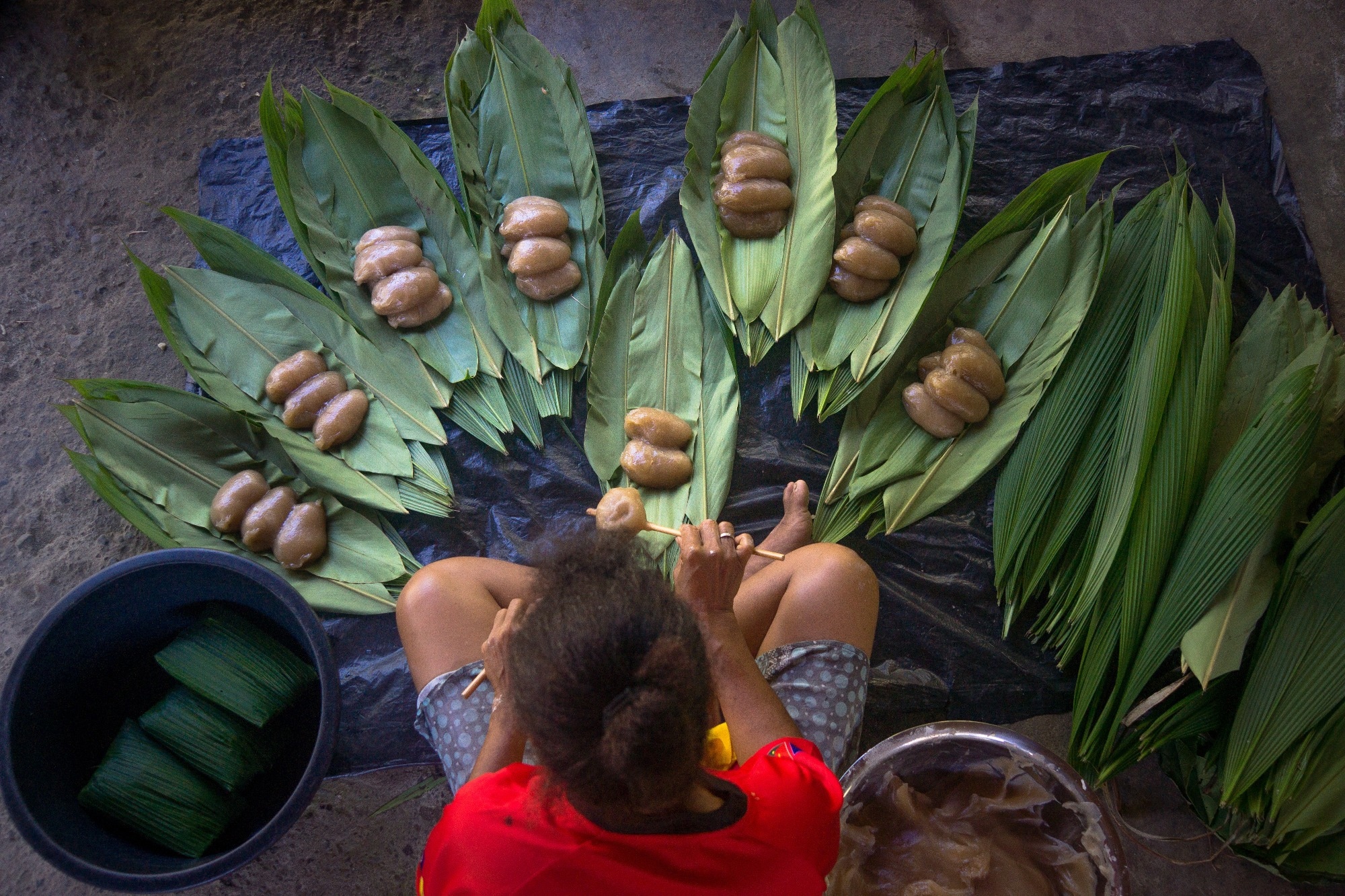In an evolving health landscape, emerging research continues to highlight concerns that could impact everyday wellbeing. Here’s the key update you should know about:
A first-of-its-kind global review will investigate how the environments where traditional peoples live influence their diets, health, and cultural survival, aiming to uncover solutions for healthier, more sustainable futures.
In a recent article published in the journal BMJ Open, researchers outlined a protocol for a scoping review on the food environment of traditional peoples and communities (TPCs).
TPCs, such as indigenous people and quilombolas (descendant communities of escaped African slaves), are culturally distinct groups with their own forms of social organization. Their nutrition is based on priority use of natural resources: plant extraction, hunting, and fishing. Historically, the changes in food systems and lifestyles, loss of land rights, and migration have impacted traditional food practices.
Food Insecurity and Health Disparities
One study indicated that the prevalence of food and nutritional insecurity was 76.7% across households in five indigenous territories in Mato Grosso do Sul, Brazil. This was approximately 12 percentage points higher than in the state population, highlighting inequalities between populations within the same state. In the United States (US), 25% of American Indian/Alaska Native people were food insecure, about twice the rate of White Americans.
The changes in dietary patterns have resulted in an increase in chronic disease risk factors, such as high blood pressure, excess weight, and increased blood sugar. For instance, a 2019 Brazilian survey found that 60% of indigenous, non-village individuals aged ≥ 20 had at least one chronic disease. Food environments with easy access to energy-rich foods and low accessibility to supermarkets are associated with poor diet quality.
Impact of Ultra-Processed Foods
Besides, substituting traditional foods with ultra-processed foods compromises nutritional health and alters economic and social dynamics, affecting the food sovereignty of TPCs. The Food and Agriculture Organization emphasizes that the food systems of indigenous people are vital for equitable and sustainable development, climate resilience, and biodiversity conservation. Thus, it is crucial to understand how TPCs’ food environment is investigated in order to overcome challenges.
About the Protocol
The researchers in Brazil presented a scoping review protocol to map research on TPCs’ food environment and identify knowledge gaps. The scoping review will adopt the Joanna Briggs Institute’s methodological framework for scoping reviews and the Preferred Reporting Items for Systematic Reviews and Meta-analyses extension for Scoping Reviews (PRISMA-ScR) checklist.
A systematic literature search will be performed using relevant terms on Medline (via PubMed), Web of Science, Embase, Anthropological Index Online, Global Health, and Scientific Electronic Library Online (SciELO) databases. Grey literature sources, including theses, dissertations, and technical reports, will also be included. Articles in languages other than Portuguese, English, or Spanish will be translated using automated tools with multilingual reviewer support. Web of Science will be used to identify publications on social sciences applied to food, while Medline will be used for health and nutrition-related studies.
The SciELO will be used to index literature from Latin America, where many traditional communities exist. The Global Health and Anthropological Index Online will expand coverage on public health policy and ethnographic studies. Reference lists of articles will be searched to identify studies omitted by databases. The criteria for inclusion and exclusion will be based on the population, concept, and context (PCC) strategy.
Inclusion and Exclusion Criteria
Studies including TPC populations will be included, whereas those involving urban communities with no links to traditional practices will be excluded. The scoping review will consist of studies that address the food environment, defined as economic, physical, sociocultural, and political environments wherein people live, work, or study, and which provide conditions and opportunities that impact food intake and nutritional status of the community and individuals. There will be no geographic, temporal, or language restrictions; however, the authors note that the broad geographic scope, while allowing global representation, may complicate comparisons between specific TPC contexts across countries.
Review Process
Two reviewers will independently examine titles and abstracts. Subsequently, full texts of studies selected by both reviewers will be analyzed. Results will be subject to a qualitative analysis to capture relevant cultural contexts and narratives. The following data will be collected: study objective(s), publication year and country, study type, specific focus on TPCs, food environment, and facilitators and barriers for interventions in the food environment. The review will include both original research and relevant grey literature; systematic reviews, meta-analyses, commentaries, and letters will be excluded.
Data Analysis and Bias Assessment
The main characteristics of selected studies will be presented to support narrative synthesis. Further, descending hierarchical classification will be used to capture thematic categories. IRaMuTeQ software will be used for textual analyses, and a similarity analysis will be performed to visualize connections between key concepts, terms, and sociocultural dynamics. The Risk of Bias in Non-Randomized Studies of Exposure (ROBINS-E) tool will be used to assess the risk of bias.
This tool will determine the risk of bias from confounding factors, exposure measurement, participant selection, post-exposure interventions, missing data, outcome measurement, and outcome selection. Each item will be rated as having low, some concern, high, or very high risk of bias. A plan will be devised to address heterogeneity and bias, involving subgroup analyses and stratification by community to ensure robustness and accuracy.
The review is scheduled to be conducted from August 2025 to August 2026, with findings disseminated to policymakers, researchers, and community stakeholders.
Journal reference:
- Barbosa BB, Tavares NHC, Adriano LS, Mendes LL, Carioca AAF (2025). Food environment of traditional peoples and communities: a scoping review protocol. BMJ Open, 15(7), e101270. DOI: 10.1136/bmjopen-2025-101270 https://bmjopen.bmj.com/content/15/7/e101270
